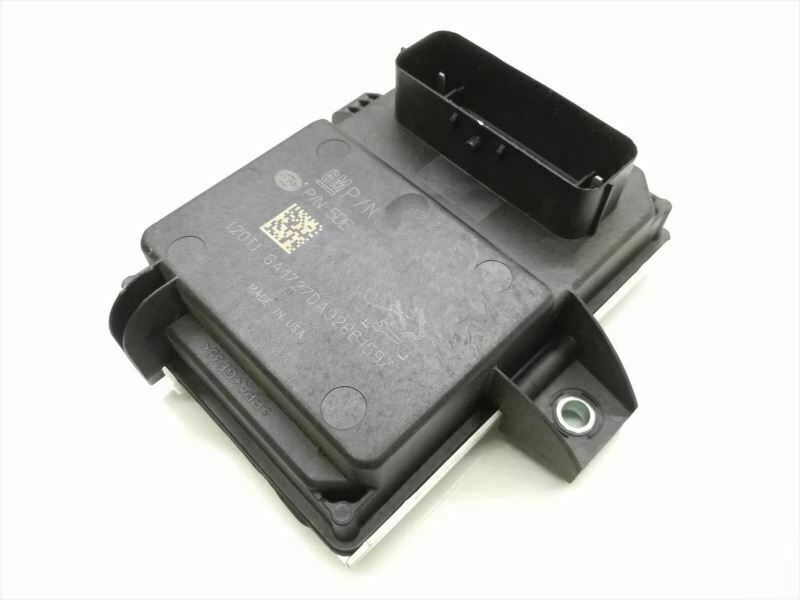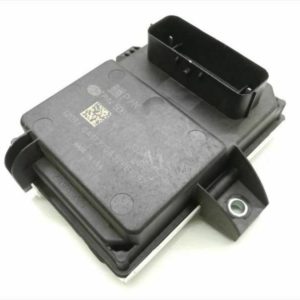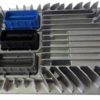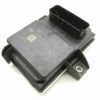Is Your Orlando Stalling, Hesitating, or Refusing to Start?
If you’re dealing with frustrating engine performance issues in your 2013 Orlando, the problem might not be the fuel pump itself, but the module that controls it. I’ve been diagnosing these GM systems for over 20 years, and a failing Fuel Pump Control Module (FPCM), also known as a Fuel System Control Module (FSCM), is a common culprit I see in my shop. It can cause intermittent problems that are a nightmare to track down, leaving you stranded without warning.
The Smart Solution: A Module Programmed Specifically for Your Vehicle
Don’t waste time and money at the dealership. This is a direct-fit replacement FPCM, part number 22874300, that we program to your vehicle’s specific VIN before it ships. This means it arrives at your door with the latest GM software updates already installed, ready for a straightforward installation. You get a reliable repair without the need for expensive scan tools or a trip to the dealer for programming.
Common Symptoms of a Failing FPCM:
- ✔ Engine stalling, especially when coming to a stop or at idle.
- ✔ No-start condition, even though the engine cranks.
- ✔ Hesitation or stumbling during acceleration.
- ✔ Reduced engine power and poor fuel economy.
- ✔ Check Engine Light with diagnostic trouble codes (DTCs) like P069E, P0230, or U0109.
Expert Pro Tip: Check the Pump Before You Replace the Module
Before installing your new FPCM, do a quick check on the in-tank fuel pump. A failing fuel pump can draw excessive electrical current, which overheats and damages the control module. I’ve seen customers replace a module only to have the new one fail a month later because the root cause was a worn-out pump. A simple check is to listen for an unusually loud humming or whining from the fuel tank area, which can indicate a struggling pump. Addressing both components at once can save you from a repeat repair.
Easy Installation for a Lasting Repair
Replacing the 2013 Orlando Fuel Pump Control Module is a job most DIY mechanics can handle. The module is typically located inside the vehicle, in the right rear quarter panel area, protecting it from the harsh elements that damage other electronics.
Plug-and-Play Installation: No Dealer Visit Required
- Safety First: Disconnect the negative terminal from your vehicle’s battery.
- Access the Module: Carefully remove the interior trim panels in the right rear cargo area to expose the FPCM. It’s a small black box with electrical connectors.
- Disconnect and Remove: Unplug the electrical connectors. Be gentle with the locking tabs. Then, unbolt the old module from its mounting point.
- Install the New Module: Bolt your new, pre-programmed module into place. Reconnect the electrical connectors, ensuring they click securely.
- Reassemble and Test: Reinstall the interior trim panels. Reconnect the battery terminal. Your Orlando should now start and run smoothly with stable fuel pressure.
Guaranteed Fitment and Compatibility
This module is a direct replacement for part numbers 22874299 and 22874300. It is guaranteed to fit and function correctly on a wide range of GM vehicles. Simply provide your VIN at checkout, and we’ll handle the programming. This part fits:
- 2013-2014 Buick Encore, Verano
- 2014 Cadillac XTS
- 2014 Chevrolet Camaro (3.6L & 6.2L), Caprice, Impala (New Style)
- 2013-2014 Chevrolet Cruze, Sonic, Trax, Volt
- 2013 Chevrolet Orlando
Order your pre-programmed 2013 Orlando Fuel Pump Control Module today and restore your vehicle’s performance and reliability with confidence.



